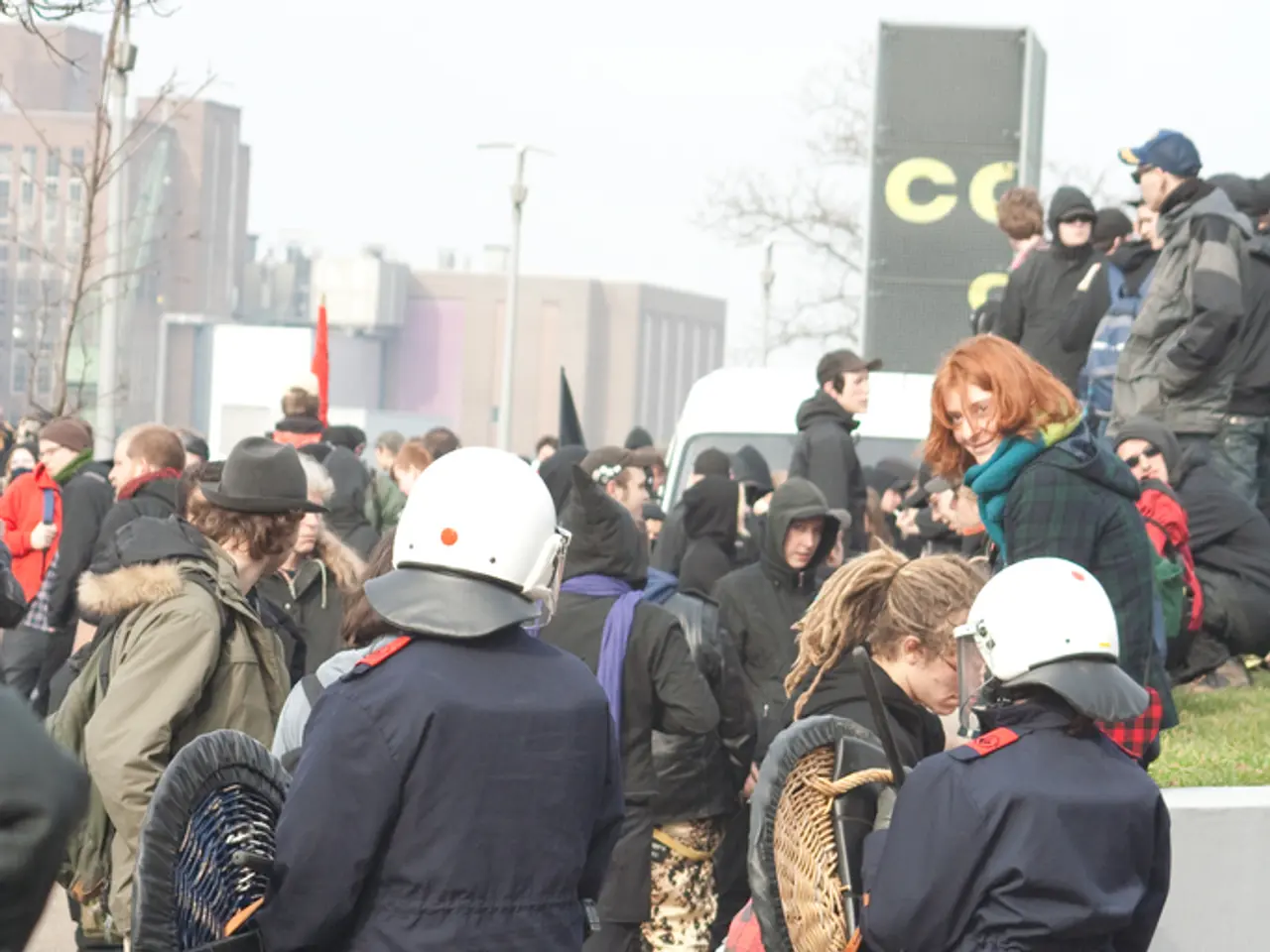Haiti announces a state of emergency due to escalating gang-related violence
In the heart of the Caribbean, Haiti, the poorest country in the Americas, is making a tentative step towards democracy. After a long hiatus, democratic elections are scheduled for November 15, 2025, following a tumultuous political journey marked by delays and instability.
The road to democracy is fraught with challenges. The country is grappling with widespread violence, gang control, and a humanitarian crisis that has left nearly half the population facing starvation. The political instability and security collapse have made it difficult for both political activity and election logistics. The United Nations and regional bodies like CARICOM have warned that Haiti is on the brink of famine, complicating efforts to hold credible polls.
The transitional government, consisting of a nine-member council and a prime minister, has been in power since June 2024. Their primary objectives are to stabilize the country and pave the way for democratic elections in November. The new rotating president of the transitional presidential council is Laurent Saint-Cyr.
The government declared a three-month state of emergency in response to escalating gang violence, affecting the central regions of Ouest, Artibonite, and Centre, which include the capital Port-au-Prince. The measure aims to facilitate a comprehensive mobilization of the state's resources to restore security and peace. A new chief of the National Police has been appointed as part of the response to the crisis.
Internationally, there is ongoing engagement to support stability and democratic legitimacy. The Organization of American States (OAS) has convened a "Group of Friends of Haiti" to coordinate action focused on security, humanitarian aid, political consensus, electoral legitimacy, and sustainable development. The UN Security Council also remains involved, including sanctions targeting gangs that undermine security and governance.
While the framework for elections and a democratic transition exists, the practical realization of free and fair elections in Haiti remains highly precarious due to the ongoing political crisis, security collapse, and humanitarian disaster. These conditions pose significant risks to the legitimacy and safety of the electoral process in the near future.
It is crucial to note that no elections have been held in Haiti since 2016. The insecurity in the country is having a negative impact on both the lives of citizens and various economic sectors. The population of Haiti is nearly twelve million, and their hopes for a peaceful and democratic future are pinned on the upcoming elections.
As Haiti navigates this challenging path, the international community continues to offer support, hoping to help the nation emerge from its crisis and establish a stable, democratic government.
- The ongoing political crisis, security collapse, and humanitarian disaster in Haiti make the realization of free and fair elections in 2025 challenging, and these conditions pose significant risks to the legitimacy and safety of the electoral process.
- The country's political landscape, including matters of crime and justice, general-news, and politics, is marked by an unstable environment, with widespread violence, gang control, and escalating security threats, which have led to the declaration of a state of emergency.





